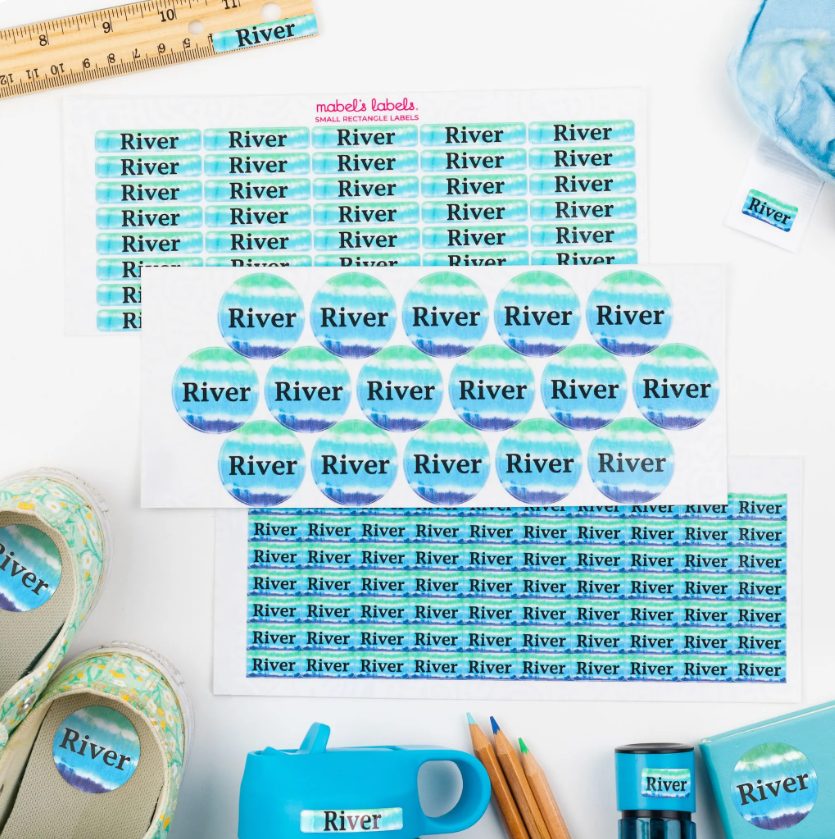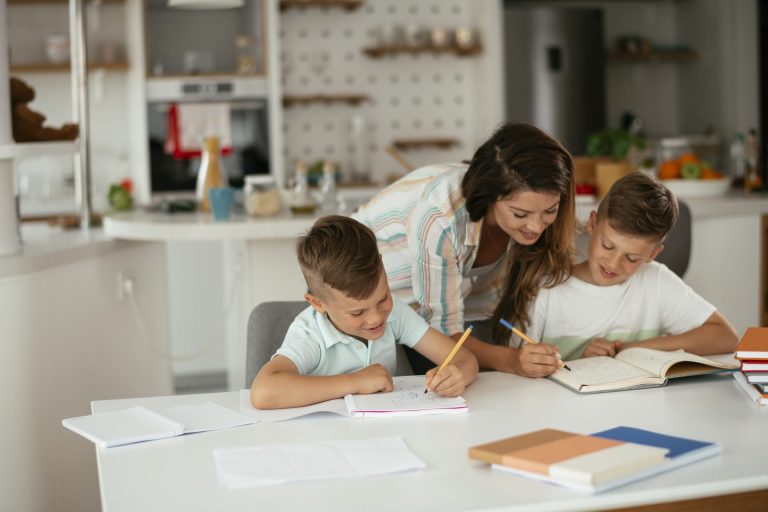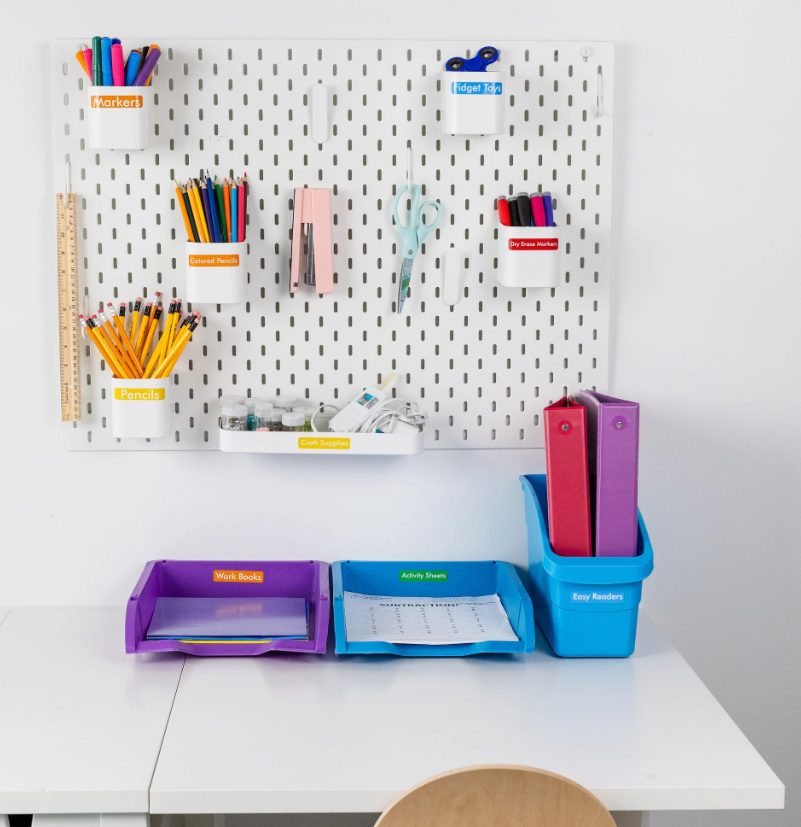So, you’re the parent who always seems to be running late, has a never-ending pile of laundry, and might have once lost their phone in the refrigerator (true story!). And now, you’re tasked with teaching your child the art of organization. Panic not! You don’t need to turn into a model of perfection to guide your little ones toward becoming organized superstars, disorganized parents can teach organizational skills too!
With a bit of creativity, a dash of humor, and a few practical tips, and some faking it, you can help them master organizational skills for school and life—even if you’re still working on finding your keys every morning. Here are some ways disorganized parents can teach their kids organizational skills.
How Parents Can Turn Chaos into a Learning Opportunity:
First off, let’s embrace the mess. If your house looks like a whirlwind hit it, don’t hide it—use it as a teachable moment. Be open and honest with your kids about your own struggles with organization. Show your kids how to tackle clutter one step at a time. Explain that organization doesn’t mean having a perfectly clean space all the time; it’s about finding a system that works for you and sticking to it.
Tips to declutter with younger kids:
Make a game out of decluttering. Set a timer for 10 minutes and see who can clear the most clutter.
Or, have a “Treasure Hunt” where kids search for misplaced items. Not only does this make tidying fun, but it also reinforces the idea that organization can be a manageable process.
Create a Fun Family Calendar:
Get yourself and your kids on the same page with a family calendar. This can be a colorful wall calendar or a digital version everyone can access. Use it to track school events, extracurricular activities, and family plans.
Calendar tips for younger kids:
Let your child decorate the calendar with stickers or drawings. The more they personalize it, the more likely they are to use it regularly. You can also use different colors for different types of events, so it’s visually engaging and easy to understand.
Set Up a Homework Station:
Designate a specific spot in your home for homework. It doesn’t need to be fancy—just a quiet, organized space with all the necessary supplies. Teach your child that having a dedicated space helps focus and reduces distractions. This will also help parents know where to find school supplies, it can be the dedicated spot for homework – but try your very best not to use it as a dumping ground!
Include the following items in the homework station: Pens, pencils, paper, markers, scissors, tape, eraser, and a spot for papers/files etc.
How to label your homework station accordingly:
You can also label different sections for different subjects, making it easier for your child to find what they need quickly. This is a great starting point!
 Teach the ‘Daily Routine’ Drill
Teach the ‘Daily Routine’ Drill
Children thrive on routine, and establishing consistent daily habits can make their lives (and yours) run smoother. Create a morning and evening routine checklist together. It might include steps like brushing teeth, packing school bags, and setting out clothes for the next day.
Use a visual chart or a whiteboard to track the routines. Let your child use stickers or checkmarks to mark off completed tasks. This not only helps them see their progress but also makes the routine more interactive and engaging.
Introduce the Magic of Lists and Labels:
Organized people love lists, they can be a lifesaver when it comes to organization. Help your child create checklists for daily tasks, homework assignments, and even packing for school. They’re a great way to track what needs to be done and ensure nothing gets forgotten. Plus, there is satisfaction in crossing items off a list!
Disorganized parents can teach organizational skills and also organize with style!
Make organization appealing by involving your child in picking out their own storage solutions. Whether it’s colorful bins, quirky folders, or a funky backpack, letting them choose makes them more invested in keeping things tidy.
Let them pick out their own name labels, and they’ll stop losing their stuff 😍 
Celebrate Achievements:
Positive reinforcement goes a long way. Celebrate your child’s organizational successes, whether it’s a neatly packed backpack, a completed assignment, or a tidy room. Acknowledge their efforts and offer praise to keep them motivated. And don’t forget to acknowledge and celebrate your own too!
Tips: Create a “Success Board”
Make a place where your child can display their organizational achievements. This could include completed checklists, creative solutions to organizational challenges, or even “before and after” photos of organized spaces. Reward their efforts with small treats or special activities. This can help with keeping one another accountable to your own organization!
Remember, organization does not mean success!
It’s important to remember that being disorganized doesn’t automatically equate to a lack of success. People find different paths to achieving their goals, and some may thrive in environments that seem chaotic to others. While organizational skills can certainly aid in reaching one’s potential, success is also about resilience, creativity, and adaptability.
Many successful individuals have unconventional methods or embrace a degree of flexibility in their approach. Please encourage your child to cultivate organizational skills but also to embrace their unique strengths and find what works best for them. The goal is to balance structure with personal style, allowing them to thrive in their way and achieve success on their own terms.
Here is another great post for parents of kids with ADHD, and how to help with executive dysfunction


